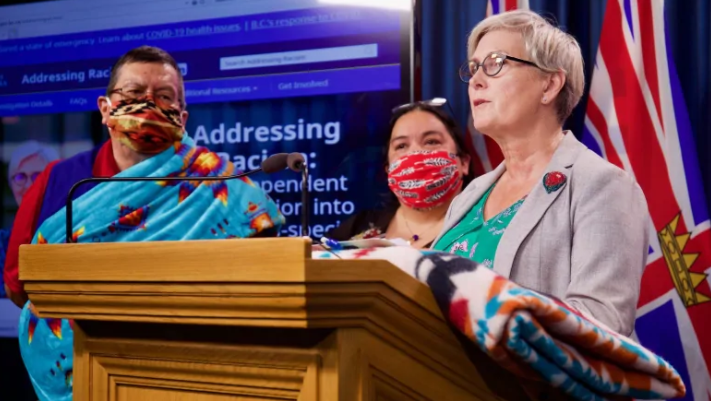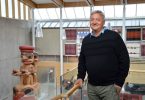November 30, 2021, marks one year since the release of the report, In Plain Sight: Addressing Indigenous-specific Racism and Discrimination in B.C. Health Care. The investigation, led by Dr. Mary Ellen Turpel-Lafond, uncovered widespread anti-Indigenous racism experienced by Indigenous people accessing health care in B.C. The final report offered 24 recommendations on systems, behaviors and beliefs to improve the quality of health care for Indigenous Peoples.
PHC strives to lead with the values of compassion, social justice and advocacy—and as a health care organization, we are committed to doing better and we reiterate and remind ourselves about our sincere apology for systemic and interpersonal racism experienced by First Nations, Inuit and Métis Peoples that have accessed, and are accessing, care from us.
Providence Health Care (PHC) remains steadfast in our commitment to the process of Truth and Reconciliation with Indigenous Peoples, and as stated in our strategic plan—Mission:Forward—“Providence Health Care is committed to the process of Truth and Reconciliation with Indigenous Peoples and it is embedded in everything we do.”
This bold commitment from Mission: Forward means that everyone at Providence holds responsibility to advance cultural safety and reconciliation. Truth and Reconciliation requires each of us to develop a shared understanding of the past and its lineage into the present. The truth is that our collective and individual inheritance is one of continued colonialism, systemic and interpersonal racism, and profound injustice and inequities faced by Indigenous Peoples.
Commitment to reconciliation has always been part of our Mission: Forward plan. Additionally, we have developed an Indigenous Wellness & Reconciliation Action Plan that will guide our collective commitment to taking action. Grounded in humility, we will anchor our actions to the recommendations of In Plain Sight and other key reports, to address systemic anti-Indigenous racism in the healthcare system, and advance Indigenous Wellness, Reconciliation and Human Rights.
But this is about more than planning. It is about reconciliation in action. One year since the release of the In Plan Sight report, PHC reflects upon actions our organization has taken as part of our commitment to reconciliation and in response to some of the recommendations from the In Plain Sight. We commit to:
- Invest in and prioritize actions that ensure that our services, settings, staff, and research proactively shape culturally-safe experiences for First Nations, Inuit and Métis Peoples and contribute to equity and improved health outcomes important to them.
- Be a safe and welcoming employer of Indigenous persons, creating an identity-affirming environment where every Indigenous staff member can thrive personally, professionally and culturally.
- Be informed, guided, and underpinned by genuine and respectful partnerships with the sovereign host Nations, and meaningful engagement with First Nations, Inuit and Métis patients, family members and community partners.
We are also committed on following the recommendation from Dr. Turpel-Lafond that support be provided for the “Design of the New St. Paul’s Hospital and health campus, including an Indigenous Wellness Centre, as a demonstration of the clear commitment to Indigenous cultural safety in B.C.’s health care system.”
PHC, Musqueam Indian Band, Squamish Nation, and Tsleil-Waututh Nation recently signed a Memorandum of Understanding to establish a formal relationship to work constructively together to advance the possibility of an Indigenous Wellness and Welcoming Centre as a key feature of the new health campus.
We are collectively committed to make the most of our once-in-a-lifetime opportunity with the development of the Indigenous Wellness and Welcoming Centre as a meaningful contribution to advance wellness, cultural safety and reconciliation.





